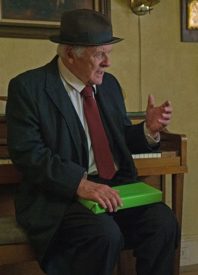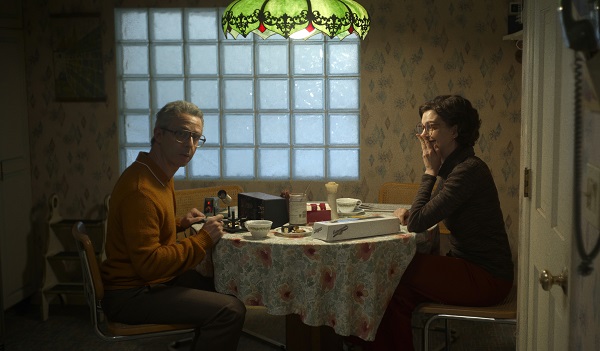
Throughout his three decade long career, James Gray has built a reputation on crafting movies that evoke the gritty lived-in aesthetic of ‘70s New York cinema. His films are richly detailed in accordance with the varying time periods in which they’re set, and at their best (The Yards and Two Lovers standing as his crowning achievements) they also possess a hazy dreamlike vibe that allow memory and reality to intermingle in intoxicating fashion. This approach becomes most explicit in Armageddon Time, a full-on autobiographical reminiscence of Gray’s upbringing in Queens, New York, finding the writer-director back on his old stomping grounds after recent cinematic sojourns in the Amazon (The Lost City of Z) and outer space (Ad Astra). On paper, it’s the kind of film that it seems like the apotheosis of Gray’s creative preoccupations. So why does it feel so oddly flat?
Set on the cusp of Ronald Reagan’s election victory in 1980, the film introduces Gray’s avatar as 11-year-old Paul Graff (Banks Repeta), the youngest son in a middle-class Jewish family. Paul is exactly the kind of restless creative soul that you would expect to go on to become a successful artist – he constantly daydreams in school and is preoccupied with painting, which in turn causes his grades to falter. This, of course, causes tension with his high-strung parents, Esther (Anne Hathaway) and Irving (Jeremy Strong), who would prefer their son focus on a more sustainable business-oriented career path. Paul’s older brother, Ted (Ryan Sell), who attends a fancy private school where members of the Trump family sit on the board of directors, serves as the depressing example that Paul is supposed to fall in line with. Thankfully, Paul’s kindly Grandpa Aaron (Anthony Hopkins) is around to encourage his artistic ambitions and provide nuggets of wisdom about how to navigate an increasingly fraught America while keeping his integrity intact.
In the past, Gray has at times displayed a frustrating tendency to sink into chintzy melodrama, which is then accordingly reflected through the performances at hand. (See Joaquin Phoenix’s histrionic turns in the more overwrought moments of We Own the Night or The Immigrant.) As perhaps Gray’s most conventionally plotted film yet, Armageddon Time faces this problem tenfold, with each performance eventually coming off like a series of try-hard Oscar clips. The talented cast may be engaging in capital-A acting, but it only dulls the emotional effect that Gray is attempting to impart, particularly during critical dramatic moments like when Irving violently punishes Paul after a moment of juvenile delinquency.

This image released by Focus Features shows Anne Hathaway, right, and Jeremy Strong in a scene from “Armageddon Time.” (Focus Features via AP)
Armageddon Time isn’t just a wistful trip down memory lane, however – Gray also wants to give us a message about Racism In America. The focal point of the narrative eventually becomes Paul’s budding friendship with a Black classmate, Johnny (Jaylin Webb). The two quickly become class clowns together, yet Paul is generally insulated from the consequences while Johnny, who lacks any kind of parental guidance or comfortable home life, bears the brunt of the reprimands. On the one hand, it’s admirable to see Gray interrogate his own role in America’s insidious climate of racism, particularly as Paul stands by silently while continuously watching Johnny take the fall. Gray also highlights how Paul’s family engages in anti-Black rhetoric even when they’ve faced antisemitism themselves and vehemently oppose the prospect of Reagan’s presidency.
But as important as these sentiments are, Armageddon Time’s messages come off rather trite. The film ends up simply pandering to ostensibly liberal audiences who can subsequently pat themselves on the back for recognizing how bad things were in the past, while avoiding any kind of responsibility for how that same behaviour persists in the present. Worse, the character of Johnny, despite being engagingly embodied by Webb, is ultimately just a narrative tool in service of a privileged white boy’s banal lesson in inequality, with Gray only taking a cursory interest in this important supporting character’s inner life.
In 2022, this kind of virtue-signalling navel-gazing just comes off as regressive and tone-deaf – even more so from a filmmaker like Gray, who has proved immensely capable of parsing delicate social dynamics in his prior work. In parsing his own childhood history, Gray has abandoned his usual sense of intriguing narrative ambiguity in order to create the kind of bland awards bait crowd pleaser that is nevertheless sure to clean up come Oscar time.
- Release Date: 11/4/2022

